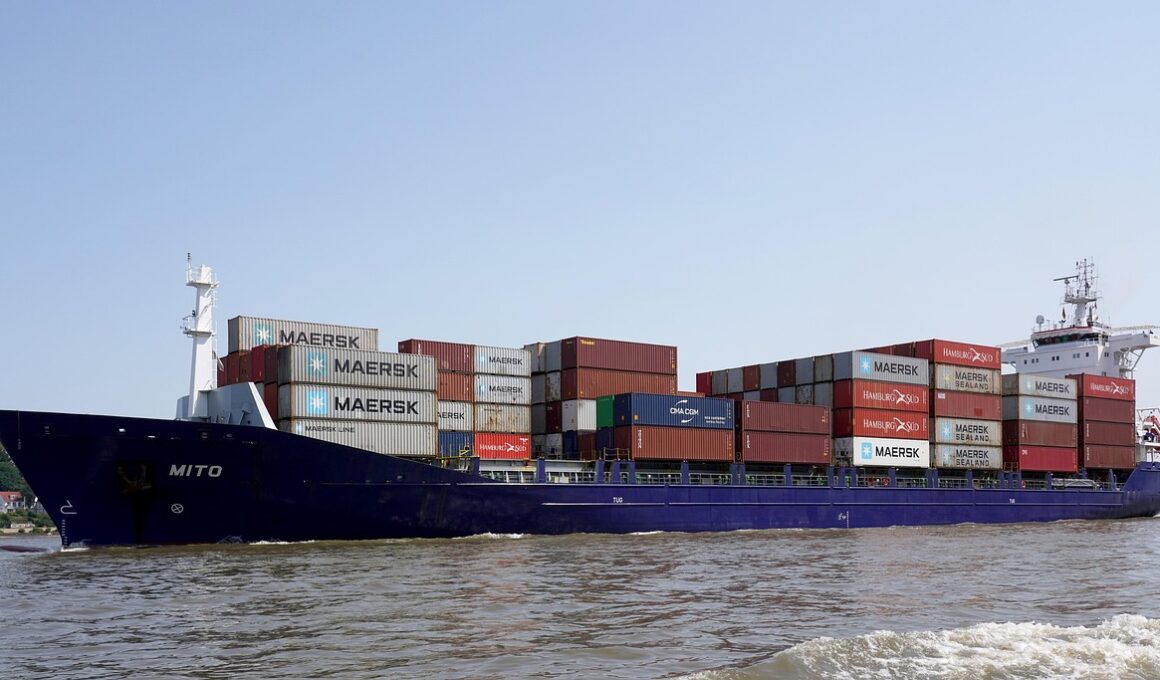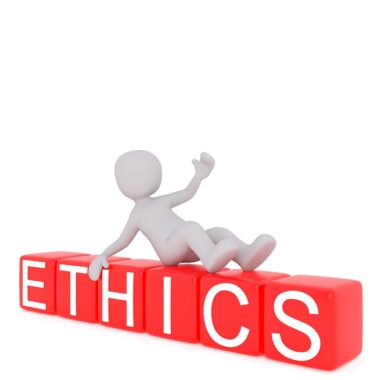Managing Ethical Risks in International Supply Chains
International supply chains present numerous ethical challenges that businesses must navigate carefully. This complexity arises from varying social, economic, and regulatory environments across countries. One primary ethical concern involves labor practices, including child labor, forced labor, and unsafe working conditions. Companies must ensure compliance with the local laws of each region while meeting global ethical standards set by international organizations. These obligations require diligent vetting of suppliers to guarantee that they adhere to ethical labor standards. Failure to address these issues can result in significant reputational damage and financial repercussions. Additionally, cultural differences in attitudes towards environmental sustainability complicate matters. Businesses must implement policies to prevent environmental degradation caused by their supply chain operations. Supply chain transparency is vital, as consumers increasingly demand to know the origins of products and the ethics behind their production. Companies should foster strong relationships with suppliers and employ third-party auditing to monitor compliance. By addressing these ethical challenges, businesses can enhance their brand reputation while contributing positively to communities. The importance of maintaining ethical standards cannot be overstated, as a strong ethical foundation fosters trust, loyalty, and long-term success.
Supply chain ethics also encompass issues of bribery and corruption, particularly in countries where such practices are more prevalent. Companies need to establish robust compliance programs to avoid engaging in corrupt practices. Training employees and partners about anti-corruption policies is essential for mitigating risks associated with bribery and unethical dealings. The implementation of a whistleblower policy can encourage reporting of unethical behaviour, helping organizations maintain integrity. Furthermore, businesses must consider the ethical implications of sourcing materials from regions facing conflict or human rights abuses. Supply chain managers should conduct thorough risk assessments to identify potential ethical hotspots. Investing in local communities can also be a positive approach; businesses can create infrastructure or provide educational resources that improve living conditions. Companies should engage directly with local stakeholders and community leaders to understand their needs better and ensure their operations positively impact the region. Additionally, effective communication about the steps taken to promote ethical practices helps build consumer confidence. A transparent supply chain can positively differentiate a brand in today’s marketplace. Addressing these ethical challenges effectively can create competitive advantages and long-term stability.
The Role of Technology in Monitoring Ethical Compliance
Technology plays a crucial role in promoting ethical compliance within international supply chains. Companies can leverage advanced tools such as blockchain technology to ensure transparency and traceability in their supply chain operations. Blockchain offers a decentralized and tamper-proof record of transactions, allowing for better tracking of materials and their origins. With this technology, businesses can easily verify supplier claims regarding their ethical practices and labor standards. Additionally, artificial intelligence (AI) can assist with risk management by analyzing large datasets to identify potential ethical breaches proactively. AI’s ability to process vast amounts of information quickly enables companies to react faster to emerging risks. However, the implementation of these technologies must be coupled with a clear understanding of local contexts and ethical standards. Businesses should also invest in training employees on how to effectively use these tools. Encouraging a culture of compliance that prioritizes ethical conduct will ensure that technology serves its intended purpose. As companies increasingly rely on digital solutions, the need for robust cybersecurity measures also becomes critical to protect sensitive information. Implementing these technologies thoughtfully can greatly enhance a company’s ethical standing in the global marketplace.
Engagement with stakeholders is vital for managing ethical risks effectively. Companies should develop strong relationships with various stakeholders, including employees, suppliers, customers, and local communities. Regular dialogue facilitates understanding of mutual expectations and allows businesses to address concerns proactively. Furthermore, involving stakeholders in decision-making processes can lead to more ethically sound business practices. For instance, engaging suppliers in discussions about fair trade practices can create shared values and ensure alignment on ethical standards. Complaint mechanisms should be established to enable stakeholders to express grievances regarding unethical behavior or practices. Addressing complaints promptly demonstrates a commitment to ethical practices and fosters trust among stakeholders. Conducting regular training sessions on ethics for all employees up the chain can reinforce company values and enhance accountability. Encouraging employees to voice their ethical concerns creates an environment where ethical decision-making prospers. This attention to ethics can significantly enhance a company’s reputation as a responsible partner in international business. By prioritizing engagement and transparency, organizations can uphold their ethical commitments while navigating the complexities of global supply chains.
Developing an Ethical Supply Chain Strategy
Developing an ethical supply chain strategy is essential for long-term business success and sustainability. Companies should begin by conducting a comprehensive assessment of their supply chains, identifying areas of risk and opportunities for improvement. Organizations must then define their ethical standards clearly, ensuring that these standards align with international norms and best practices. Involving external stakeholders in this process can bring additional perspectives and assist in creating a more robust strategy. Once standards are established, organizations need to communicate expectations to all suppliers and partners clearly. Establishing a code of conduct outlining ethical expectations can serve as a useful tool in this regard. Moreover, organizations should invest resources in monitoring supplier compliance with these ethical standards continuously. Regular audits and assessments can help identify areas for improvement and ensure suppliers are adhering to the agreed-upon standards. Adopting a continuous improvement mindset enables companies to navigate changing ethical landscapes effectively. Building an ethical supply chain also involves educating employees and updating them regularly on evolving ethical concerns and best practices. By committing to ethical standards, companies can build resilient, responsible supply chains.
Partnerships with NGOs and ethical organizations can provide valuable support in managing ethical risks in international business. Collaborating with these organizations can enhance a company’s credibility and demonstrate commitment to ethical practices. NGOs often possess extensive knowledge of local conditions, allowing businesses to navigate complex ethical frameworks more effectively. These partnerships can enable companies to engage in initiatives that foster economic growth and social responsibility in the communities where they operate. Social audits conducted by third-party organizations can provide essential insights into supply chain operations, helping companies to identify potential ethical issues and areas for improvement. Companies can then assess the effectiveness of their compliance measures while ensuring that suppliers meet established ethical criteria. By collaborating with nonprofits and ethical experts, organizations can implement grassroots solutions that address ethical challenges in practical ways. Businesses should also make their findings transparent by publicly disclosing audits and ethical compliance efforts. This level of transparency fosters trust and displays accountability. Engaging with communities supports ethical business practices helps create a more sustainable future for both businesses and societies alike.
Conclusion: The Future of Ethics in International Supply Chains
The future of ethics in international supply chains hinges on adaptability and a strong commitment to ethical practices. As global trade continues to evolve, businesses must remain vigilant and responsive to changing societal expectations regarding ethical behavior. This ongoing evolution will involve incorporating technological advancements, fostering open communication with stakeholders, and investing in education on ethical practices for employees. Companies that embrace these changes will likely thrive in a competitive environment increasingly focused on corporate responsibility and sustainability. The role of consumers in influencing ethical standards cannot be overlooked; informed consumers increasingly favor brands with strong ethical commitments. Organizations must engage with these consumers, demonstrating their dedication to ethical practices transparently. By prioritizing ethics, businesses can differentiate themselves and build strong brand loyalty. Ultimately, ethical business practices will contribute to a more equitable global economy, ensuring that all stakeholders benefit. In summary, companies need to address ethical challenges in international supply chains proactively to maintain competitiveness and foster societal welfare. Emphasizing ethics will lead to sustainable growth, enhanced brand reputation, and a positive impact on global communities.
In conclusion, embedding ethics into the fabric of international supply chains is not merely a legal obligation; it is an operational necessity. As globalization intensifies, the likelihood and scope of ethical risks also increase. Companies must not only comply with regulations but also align their operations with the ethical expectations of both consumers and stakeholders. A proactive stance in addressing ethical challenges can serve as a competitive advantage. Simultaneously, organizations should remain open to feedback and adapt their strategies according to stakeholder input and evolving ethical landscapes. Strengthening supplier relationships through engagement and collaboration will be crucial in this effort. Providing training, resources, and monitoring to suppliers will enable a culture of ethical accountability throughout the supply chain. Understanding local nuances in labor laws, environmental issues, and cultural expectations is essential for global operational success. Making ethical considerations central to decision-making processes enhances brand integrity and public trust. Ultimately, companies investing in ethical practices in their supply chains are better positioned to navigate complexities in international markets. Embracing ethical values is not just about compliance; it is about building a more sustainable and just future for all.





